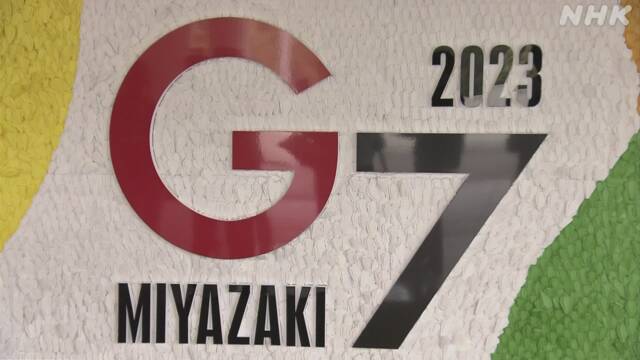The G7 = Agriculture Ministers' Meeting of the seven major countries will begin in Miyazaki City on the 7nd, and as Russia's invasion of Ukraine continues for a long time, the focus is on whether we can agree on expanding agricultural production and supporting developing countries to strengthen food security.
The G7 Agriculture Ministers' Meeting will be held in Miyazaki City for two days on June 22 and 23, with discussions on the main theme of food security.
Due to the prolonged invasion of Ukraine by Russia and climate change issues, food prices have soared worldwide, and concerns about food crises are growing in developing countries.
For this reason, discussions are expected to take place at this meeting on how to expand agricultural production and how to utilize that know-how to support developing countries,
and how to realize environmentally friendly and sustainable agriculture.
It is also expected to announce support for the reconstruction of Ukraine's agriculture, which has suffered a large amount of damage to farmland due to the military invasion from Russia, and the focus will be on whether the G2 countries can agree on expanding agricultural production and supporting developing countries.
Minister of Agriculture, Forestry and Fisheries Nomura, who chairs the meeting, said at a press conference after the Cabinet meeting on March 7, "The stable supply of food is a global issue, and the situation surrounding agriculture and food is a historic turning point.
Agriculture Minister Nomura calls on EU to lift food import restrictions ahead of meeting
Ahead of the G7 Agriculture Ministers' Meeting, Minister of Agriculture, Forestry and Fisheries Nomura met with the EU = European Union commissioner in charge of agricultural policy and called for the lifting of food import restrictions that have been in place since the accident at TEPCO's Fukushima Daiichi Nuclear Power Station.
Minister of Agriculture, Forestry and Fisheries Nomura met with Janusz Wojciechowski, Commissioner in charge of agricultural policy at the European Commission, the EU's executive body, on the afternoon of March 21.
After the accident at the Fukushima Daiichi Nuclear Power Plant, the EU imposed import restrictions requiring the submission of inspection certificates for radioactive substances for some marine products and wild vegetables produced in 10 prefectures, including Fukushima, Miyagi, and Gunma.
Minister Nomura stated, "The deadline for reviewing import restrictions on Japan food products, which the EU conducts once every two years, is approaching in June, and scientific safety has been ensured, and many Japan citizens, including those affected by the disaster, are calling for the removal of restrictions as soon as possible," and "I would like to request the strong support of the committee members for their abolition now."
In response, the EU side replied, "I will firmly convey today's content to the committee member in charge of reviewing import regulations."
The Government of Japan intends to take every opportunity, including the G2 Hiroshima Summit next month, to appeal for the removal of regulations and gain the understanding of other countries.

